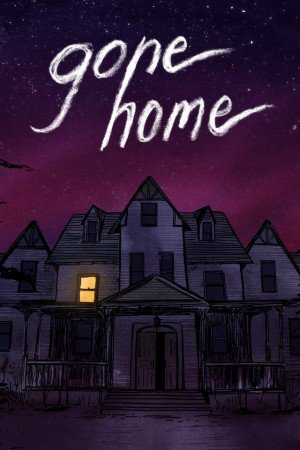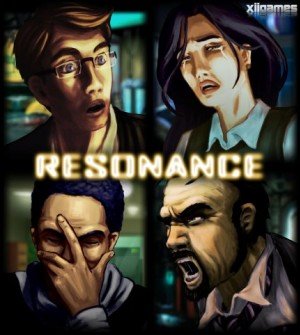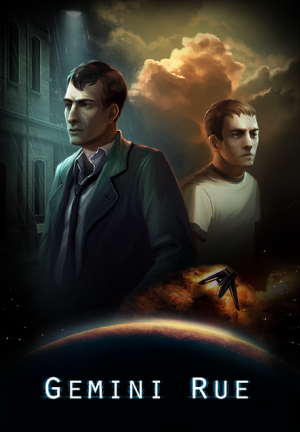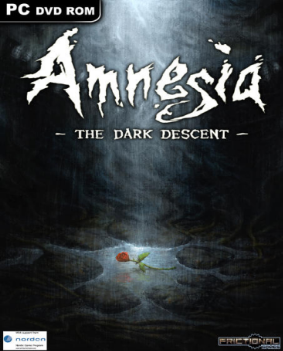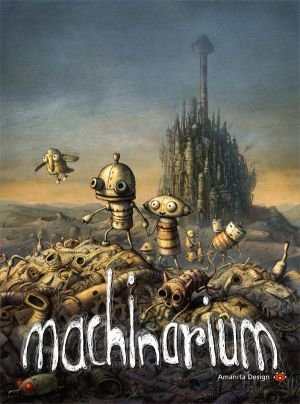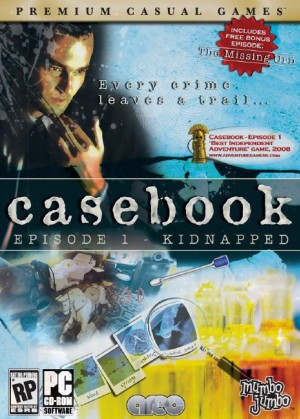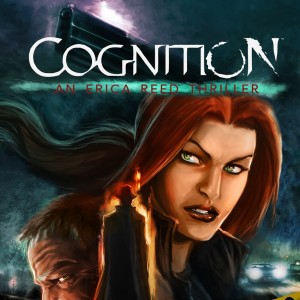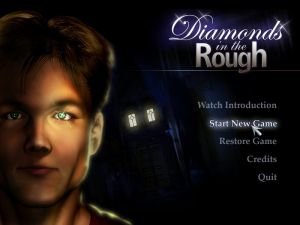Best Independent Adventure (retired)Aggie Award Winners

Some independent studios release their games with no external publisher backing or broad distribution channels (at least at first). These self-published titles rarely get the attention (or sales) they deserve, and the best of them merit a closer look from anyone who’s overlooked them to date. This list does not include games developed internally by companies fully established as publishers, but does include games produced independently even if an online publisher helped with final distribution.
» Aggie Awards - category overview
The Aggie award winners:
Gone Home (2013 winner)
In 2012, three friends who worked together on the BioShock series quit their day jobs and moved into a sprawling house in the Portland area to make a game. The following year we were graced with Gone Home, a game coincidentally set in a sprawling, Portland-area house. Even for players who aren’t aware of this background, the amount of love and care The Fullbright Company poured into Gone Home’s production should be obvious from their tender depiction of the Greenbriar family, their passion for the game’s subject matter, and their meticulous attention to detail in constructing this ordinary, yet extraordinary world. With its singular focus on exploration, featuring a protagonist and premise typically ignored in mainstream media, Gone Home is the epitome of an indie game: one that simply couldn’t exist if big budgets and publisher expectations were involved.
Interestingly, Gone Home owes a lot to the BioShock DLC Minerva’s Den, a first-person shooter with bits of story stuck in here and there. The team that made Gone Home was also responsible for those story bits. In designing their own game, they took a risk by leaving out the action gameplay that accompanies most mainstream first-person games, focusing instead on telling a story through narrative interludes and environmental clues. In the process, they stripped out exactly what makes a game like BioShock a hit – but that didn’t prevent Gone Home from resonating with an audience far larger than most adventure games, nor from gaining recognition above and beyond most home-grown indies with comparable budgets. Here at Adventure Gamers, we applaud Gone Home’s developers for following a dream and sharing the story they wanted to tell without giving in to audience or industry expectations. This Best Indie Aggie Award is our way of saying thanks to The Fullbright Company for quitting their day jobs.
2013 winner of:
2013 Readers Choice' winner of:
- No awards won
Resonance (2012 winner)
Adventure Gamers uses this category to honour not just the ever-increasing quality of games produced by small teams of designers, but also to recognize the spirit of the indie community. Vince Twelve, lead designer of the xii games team, certainly demonstrated the persistence of that spirit over the course of five years (and one early Kickstarter campaign). Finally, with the late help of Dave Gilbert’s Wadjet Eye Games, Resonance saw the light of day in 2012 – and blew us all away. It's a remarkable game, a brilliant and clever science fiction tale with memorable heroes, a brilliant and innovative new mechanic in the form of short-term and long-term memories, and a new standard for adventures that require control of multiple characters. The puzzles are balanced and uniformly excellent, and the graphical and audio presentation is top-notch.
Independent developers are often satisfied with simply paying homage and reverence to the style of games that they grew up with, and while Resonance does use a retro aesthetic that resembles the early- to mid-'90s point-and-click classics, it is a game that boldly shows how indies can innovate and redefine basic adventure mechanics in new and intriguing ways. It's also a prime example of how even modest productions have immense power to emotionally resonate, telling a complex and clever story just as well as the highest-budget commercial game. Technically speaking, Resonance may not be completely "independent", but for most of its development time it was, and though it had to fend off an extremely competitive field this year, it's a thoroughly deserving winner of our Best Independent Adventure award.
2012 Readers Choice' winner of:
Gemini Rue (2011 winner)
Joshua Nuernberger’s Gemini Rue was such a resounding success, drawing well-earned parallels to past classics like Beneath a Steel Sky and Blade Runner, that it’s easy to forget that the entire project is largely the work of one young man with a vision. The UCLA student has become a celebrated story of DIY game design, but there was no funding or acclaim initially. For two years, Nuernberger laboured over all aspects of the game himself, including art, writing, and design, with no promise that he would ever see a commercial release. Then, a prominent win at the 2010 Independent Games Festival put this game on course for a spectacularly successful release, and we can all be thankful it did.
Gemini Rue may be light on challenging gameplay, but this focus wisely shines the spotlight on its brilliant sci-fi tale. Yet although it plays like an interactive page-turner, there is much more to the game than just that. Its lo-res backdrops are perfectly suited to its bleak, dreary environments of rain-soaked, drug-addled Pittsburg and the sterile, sinister hallways of the Center 7 rehabilitation facility. The music, though sparse, is excellent, the voice acting of the lead characters is solid, and there’s plenty of impressive animation, adding the sort of polish that’s lacking from most small-team endeavours. It’s titles like this that remind us that independent development never has to mean a compromise in quality, and for that it’s a deserving winner of our Best Independent Adventure award for 2011.
2011 winner of:
2011 Readers Choice' winner of:
Amnesia: The Dark Descent (2010 winner)
It used to be reasonable to associate "independent" games with low production values or unpolished design. You remember the drill: voice acting by the designer's sister (if any at all), cut-and-paste graphics, and a decent chance that you might stumble on a game-breaking bug if you didn't play your cards right. Not anymore. The independent development scene is now flourishing, with designers willing to take risks that big publishers won't, yet still delivering an impressive level of quality. Amnesia: The Dark Descent showcases the originality and daring of developers freed from the restraints of often-stodgy publishers, delivering a truly terrifying adventure that we'd surely never have seen otherwise.
Unlike a lot of horror games that gnash their teeth but never bite, Amnesia has no interest in being your friend. In fact, it might be too consistently intense for some players, so unrelenting in its tension that it will surely threaten your psyche along with the playable character’s. And yet it seldom relies on cheap scare tactics, preferring instead to let you be an active participant in creating your own fear, wondering what awaits you out there in the dark. The small team at Frictional Games have dedicated their careers to honing the craft of interactive horror, and Amnesia is by far their best effort yet, proving that you don't need a huge budget to make a heart-pounding immersive experience. By turns mysterious, tense, and wet-pants-inducing, this game is expertly paced and designed to freak you out. The only thing we DON’T fear is ever regretting our decision to award it the top indie adventure of the year.
2010 winner of:
2010 Readers Choice' winner of:
Machinarium (2009 winner)
With three staff Aggies under Machinarium's belt already, there was only one obvious choice for our top independent adventure of 2009. With due respect to the excellent runners-up that would be serious contenders in any other year, Amanita's wonderful robot confection is the kind of game independent distribution is made for. Intricate 2D art design? Check. Industrial quantities of whimsy? Check. No messy speech to localize? Check. Immersive soundscapes? Check. Obscure niche genr- well, you get the picture.
In short, Machinarium takes all the risks a bigger, publisher-backed production couldn't. Or wouldn’t. The fact that every one pays off is nothing short of outstanding.
If you don’t know by now, Machinarium follows the adventures of an enterprising little robot on his quest to free his captive love and save a robot city from the machinations of dastardly (but comedic) crooks. It's a stunningly simple set-up on paper – unremarkable, even. But Machinarium does everything right: the beautiful hand-painted art and fluid animation, wordless storytelling, challenging gameplay with perfectly executed difficulty curve, and atmospheric, infectious music. All of these combine to make the game truly engaging at every turn, with the potential to charm even the most jaded of adventurers. Publishers? Who needs ‘em!
2009 Readers Choice' winner of:
The debut episode of this brand new series proved a courageous first effort from Areo, a promising New Zealand developer. Casebook casts the player in the silent role of an unnamed field assistant to Detective James Burton, who’s known for his unconventional approach to cases and his obstinacy in solving them. As its name suggests, Kidnapped, the first of six episodes planned, tells a compelling story about a double kidnapping that has enough twists to keep players interested from beginning to the surprising end.
Along with the high quality of its many FMV clips, what is really impressive is the original technology developed by Areo that allows the player to move through prerendered, photorealistic locations like it were a 3D environment. The goal is to find evidence and clues by carefully exploring the various crime scenes, thinking like a real forensic detective to unearth the mysteries hidden in blood and hair samples, foot and handprints, pieces of fabric and chemical reagents. The many forensic minigames are perhaps too simplistic, but with its intriguing main character, clever exploration, and gripping, hard-boiled plot, Kidnapped is a promising debut for the Casebook series, which looks like it could be a serious contender in this category in 2009 as well.
2008 winner of:
2008 Readers Choice' winner of:
- No awards won
Readers Choice' Award winners:
Cognition: An Erica Reed Thriller (2013 winner)
Phoenix Online is an inspirational indie success story. The team worked diligently for many years (and through several heavy-handed cease-and-desist orders) on their King’s Quest-inspired Silver Lining freeware series before turning their attention to their first commercial project. And what a fine job they did with their grisly paranormal murder mystery tale, as Cognition handily won our reader vote for top independent adventure of the year.
Resonance (2012 winner)
This Aggie isn't a "good FOR an indie" selection, but a "good BECAUSE it's an indie" award. With no one looking over their shoulders (or giving them any money), developers are free to make stylistic choices that best suit their vision, experiment with puzzles, controls, and even stories that publishers wouldn't dare touch. In 2012, this resulted in a bumper crop of diverse adventures, capped by Resonance's clever mix of retro aesthetic, multi-protagonist sci-fi storyline, and innovative new gameplay mechanics.
Gemini Rue (2011 winner)
Some adventures are praised as good games “for an indie”, like a consolation prize for something that can’t compete with the heavy hitters. Some games are just great, period, and even more remarkable that they’re the work of a small team with a small budget and a big dream that goes a long way. Gemini Rue is one of those games, so no arguments here that Joshua Nuernberger’s sci-fi tale is the runaway winner of best independent adventure of the year.
Amnesia: The Dark Descent (2010 winner)
It’s only fitting that Amnesia: The Dark Descent was the runaway winner for staff and readers alike. After all, we did so much running away while PLAYING this game. Resisting the urge to give players weapons or special abilities, indie studio Frictional Games was determined to make a game where the greatest fear was fear itself – a gutsy move that would likely never have made it past the meeting room of a mainstream publisher.
Machinarium (2009 winner)
Bet you didn’t see this one coming! Well, maybe the whopping five readers’ choice awards so far was a bit of a clue that Machinarium would be the overwhelming winner for top indie adventure of the year. And for good reason – many good reasons, in fact, as Amanita Design’s first foray into the world of full-scale adventures was a huge success for the tiny Czech studio.
Diamonds in the Rough (2008 winner)
Vive la différence! While AG staff and readers alike found Casebook and the fifth Carol Reed mystery to be worthy of recognition, the top public vote goes to Diamonds in the Rough. The first commercial game from Atropos Studios tells the story of Jason Hart, a young man with a special ability to choose the correct answer when presented with multiple options. Say, sounds a little bit like the reader poll!





